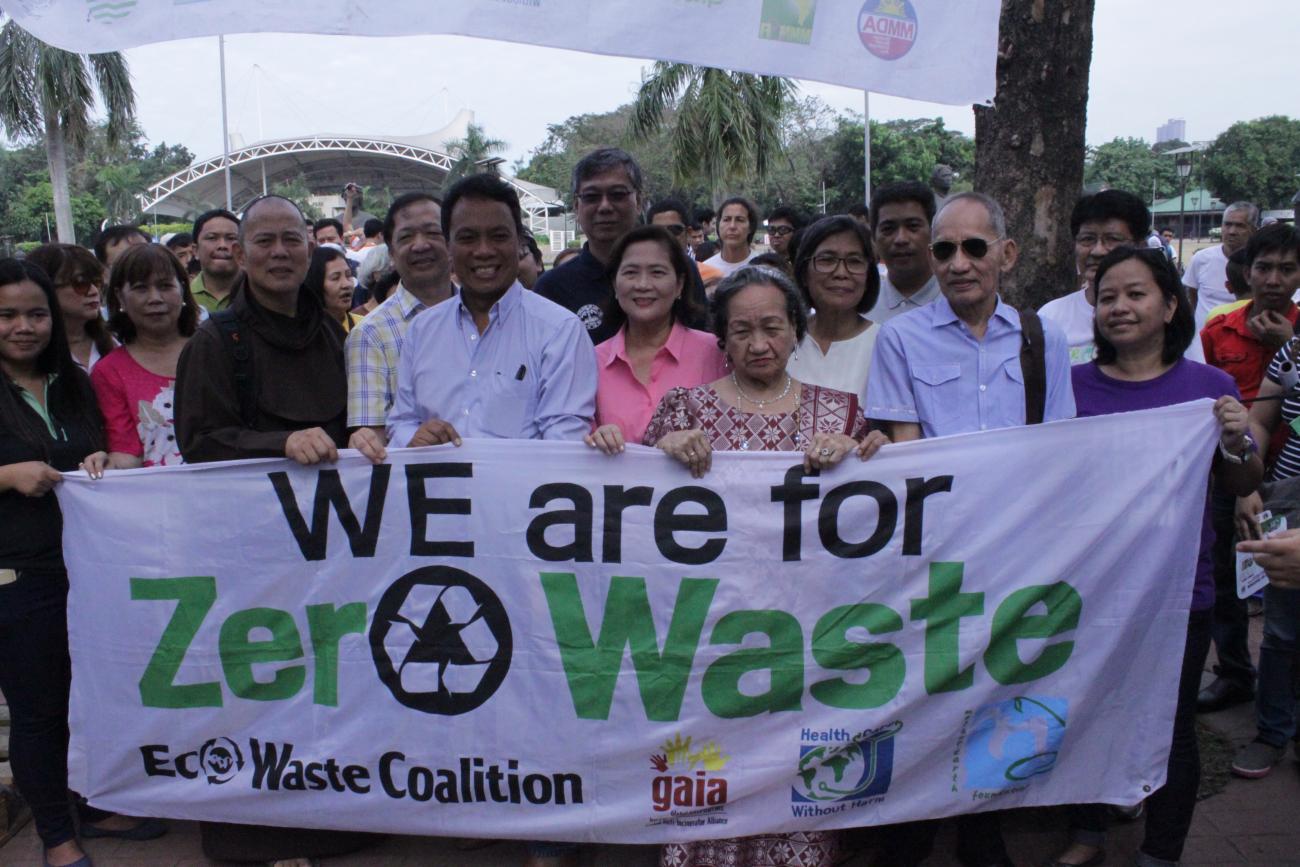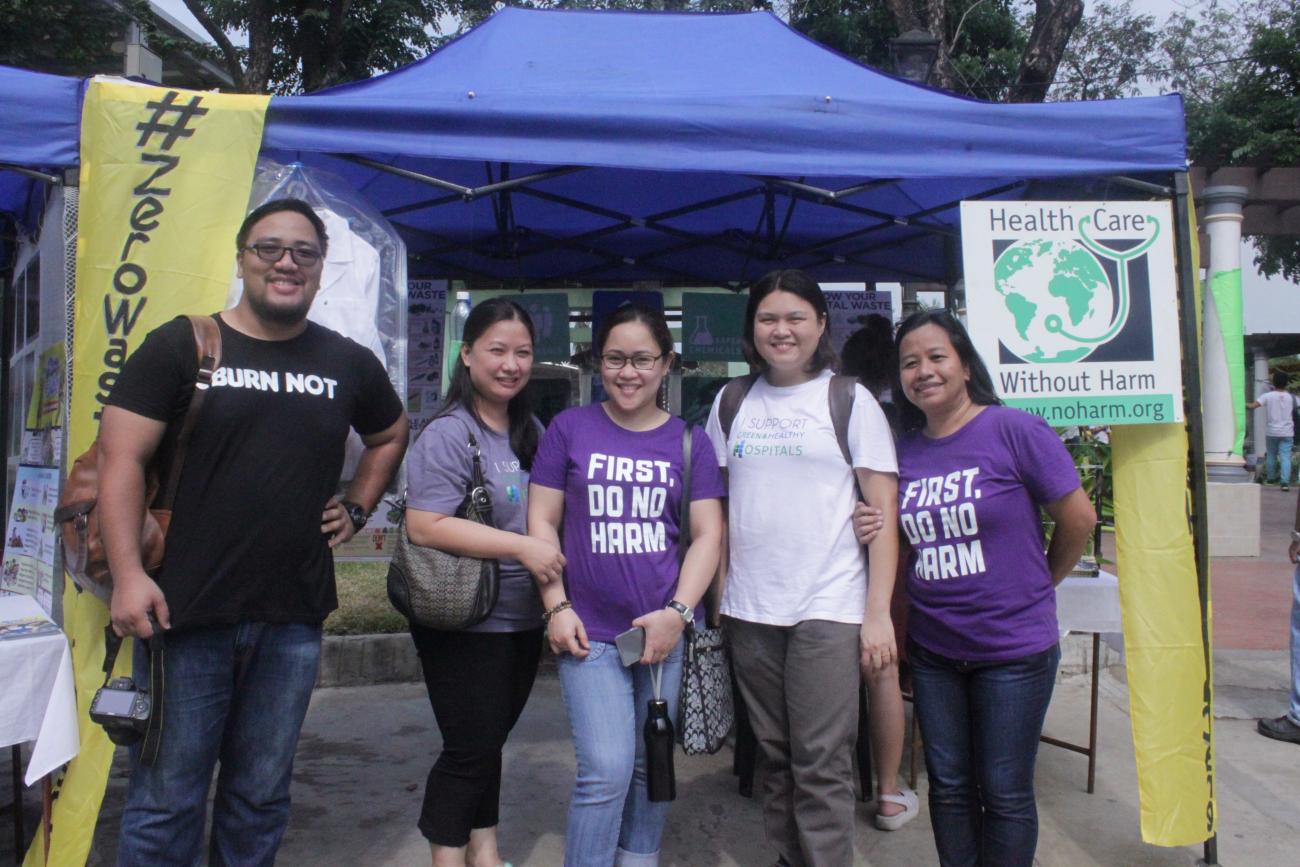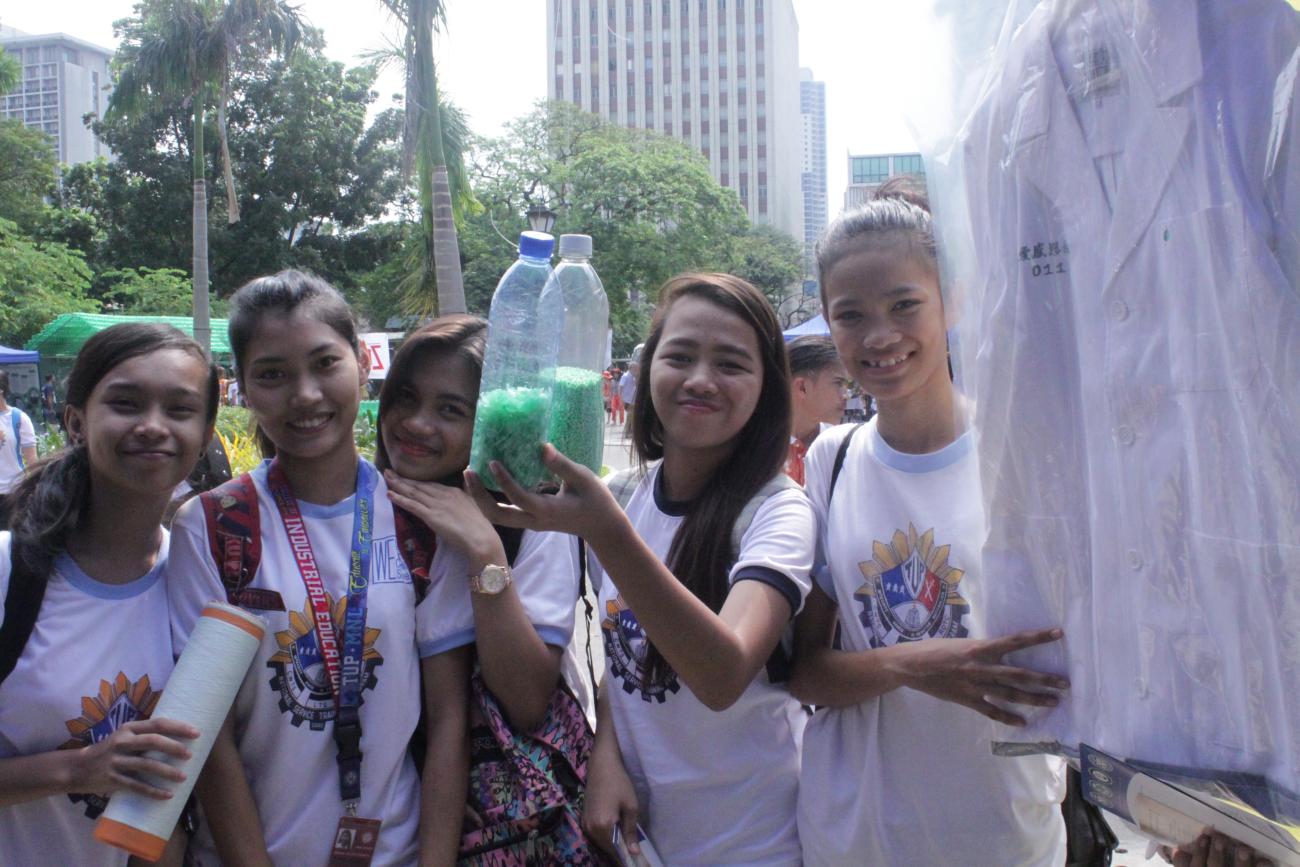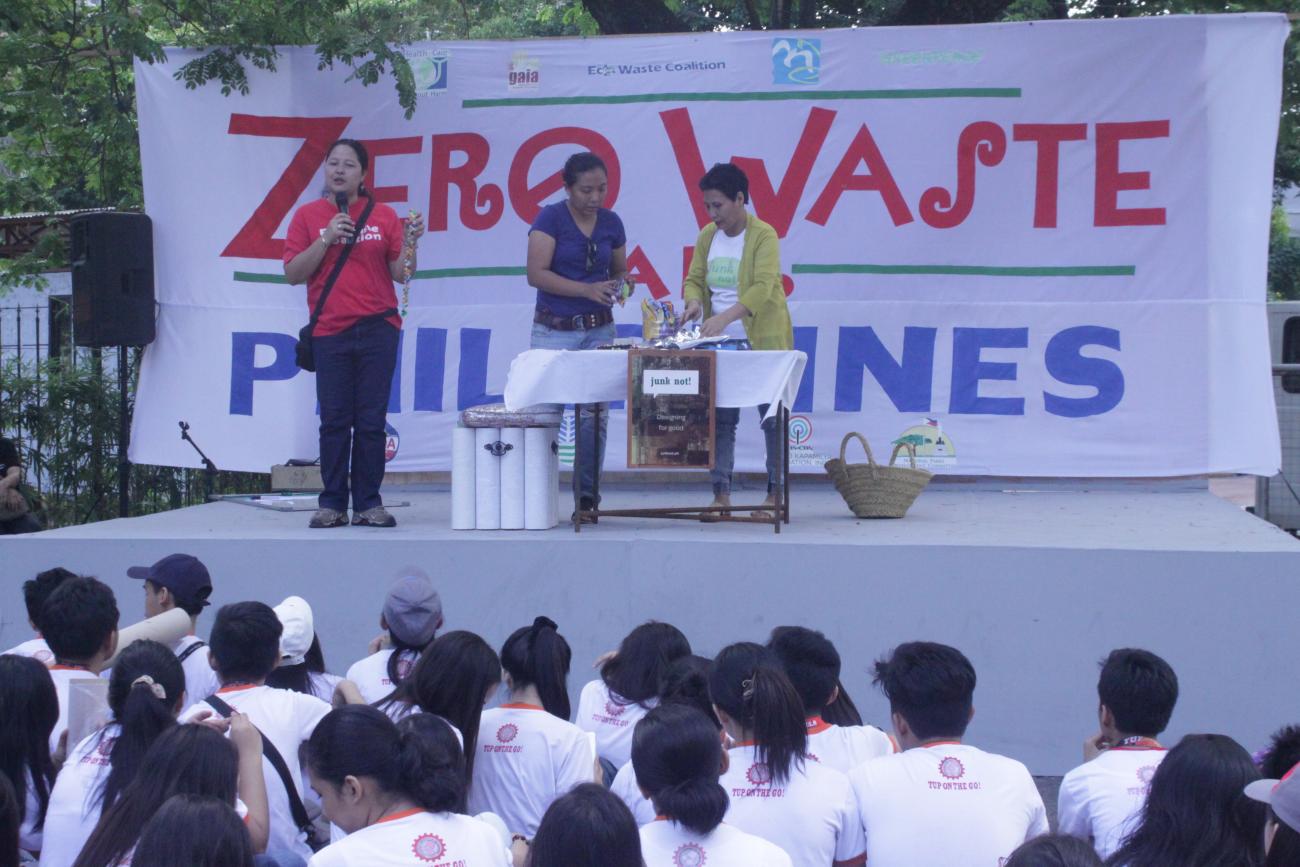Manila, Philippines — Health Care Without Harm-Asia (HCWH-Asia) joined the nationwide celebration of Zero Waste Month with a call to the local health sector to take the lead in helping preserve the environment through sustainable health care waste management.
During the 2nd Zero Waste Fair, the celebration’s culminating activity held in Luneta Park last January 30-31, HCWH-Asia showcased some of the best practices of hospitals that are implementing both innovative and simple initiatives in their health facilities to lessen the amount of waste they produce.
Environmental advocates from the energy, civil society, and government sectors lead the opening ceremonies at the first day of the Fair.
Doing no further harm
Health care has the responsibility to protect and do no harm to both human beings and the planet. But as an industry, it is one of the largest contributors of waste globally— from the tons of ordinary garbage such as food wastes and containers that hospitals produce each day, to the hazardous types of waste that require special handling such as chemical, pharmaceutical, and radioactive wastes.
HCWH-Asia works with hospitals and health systems to empower them to reduce the amount, toxicity, and impact of waste they produce through the promotion of proper waste management such as minimization, segregation, and proper treatment.
Showcasing hospital’s green practices
“Of the tons of waste hospitals produce each day, 80% are general waste which can be reused and recycled and even generate more income for the hospital,” explained HCWH-Asia’s Environmental Health Campaigner Ayeth Enrile.
One of the organization’s campaigns, the Global Green and Healthy Hospitals (GGHH), works with hospitals and health organizations worldwide to work on goals that will lessen health care’s environmental footprint. In Asia, one of the biggest areas that GGHH works on is the reduction, treatment and safety disposal of health care waste.
In partnership with the St. Paul Hospital Cavite, HCWH-Asia is currently implementing a pilot study on vermicomposting to research on the feasiblity of using worms to effectively treat infectious wastes such as used gauzes and soiled diapers.
The HCWH-Asia team promoting environmental health at the event exhibit
St. Paul Hospital Tuguegarao involves their hospital staff and patients in producing handicrafts like keychains, Christmas decors, and artworks made out of used medical devices such as intravenous (IV) tubings and syringes.
The Buddhist Tzu Chi Medical Foundation, a Taiwan member of GGHH, uses medical uniforms made out of recycled plastic bottles. The Foundation, which runs 6 hospitals across Taiwan, is known for implementing comprehensive recycling programs within their facilities and nearby communities.
Some of the products showcased at the HCWH-Asia booth include medical uniforms made out of recycled PET bottles by Tzu Chi Foundation's Da-Ai Tech
“As the call for the health sector to step in the fight against climate change continues to intensify, we encourage more hospitals and health facilities in the country to heed to the call starting with coming up with creative ways to minimize the wastes they produce,” added Enrile.
The Fair also featured workshops on recycling and vermicomposting by various groups
Health Care Without Harm-Asia is one of the co-organizers of the 2nd Zero Waste Fair together with the EcoWaste Coalition, Global Alliance for Incinerator Alternatives, Greenpeace Southeast Asia, and Mother Earth Foundation. In May 2014, President Benigno Aquino III signed Presidential Proclamation (PP) No. 760 declaring January as Zero Waste Month in the country.



